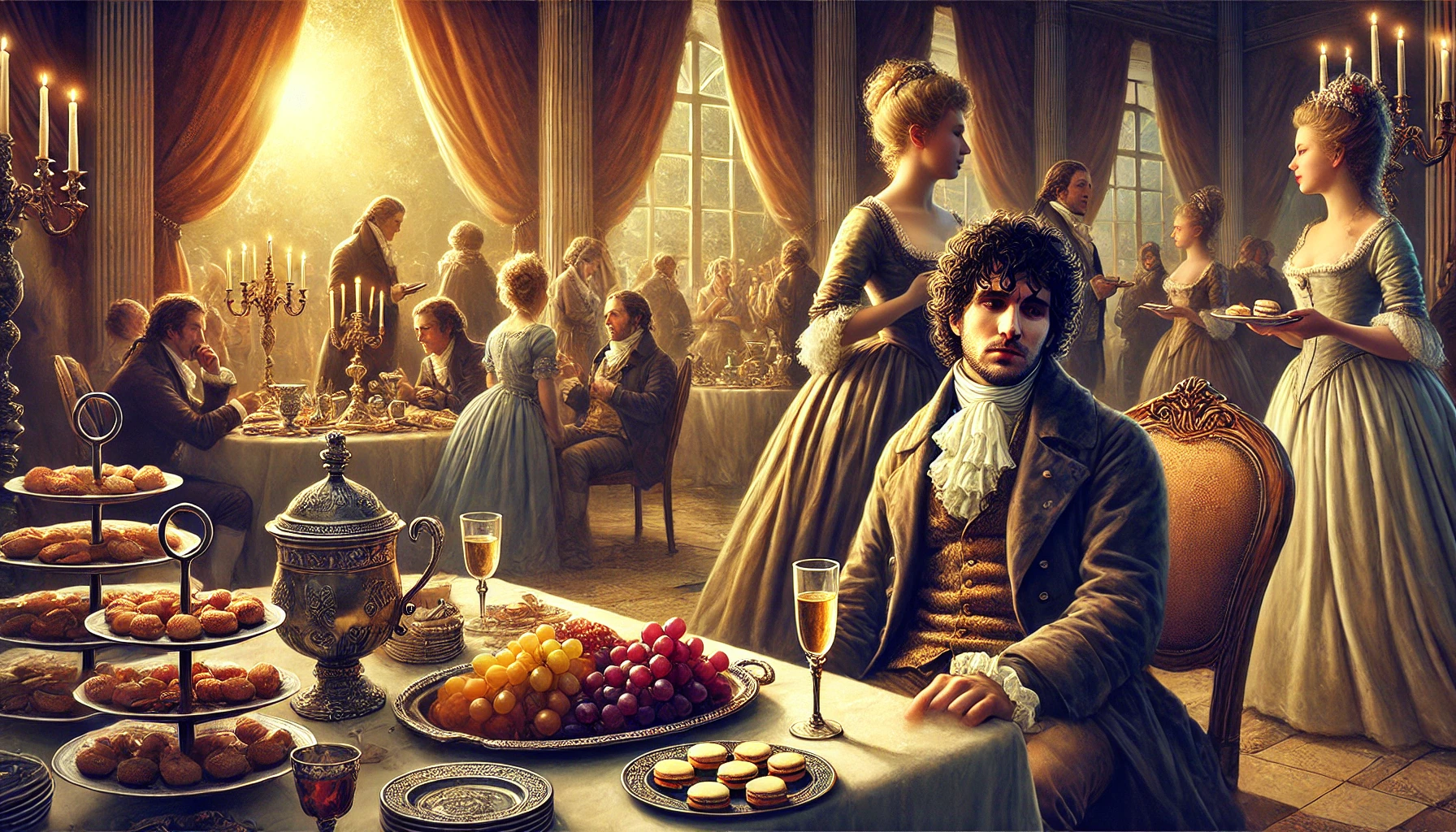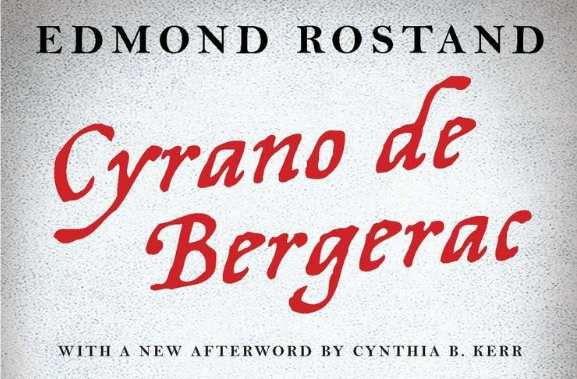Scene 1. V.
byScene 1. V. of Cyrano de Bergerac opens with a powerful illustration of Cyrano’s impulsive nature, as he spends his entire inheritance in a single day. This reckless act, which Le Bret criticizes as foolishness, is defended by Cyrano as an expression of grace and honor. Even though he is now left without any wealth, Cyrano’s pride and dignity remain unscathed, a testament to his unshakable sense of self-worth. He values his honor above all else, and even in the face of material loss, he chooses to preserve his integrity. In this instance, Cyrano’s character is defined not by his possessions but by his ability to hold onto his pride and self-respect. This theme of honor versus material wealth runs deep throughout the play, illustrating Cyrano’s belief that true worth is found in one’s actions and principles, not in what one owns.
In the midst of this, a sympathetic buffet-girl offers Cyrano a small, humble meal of grapes, a glass of water, and half a macaroon. This simple act of kindness touches Cyrano, yet his Gascon pride compels him to accept the food in a way that doesn’t undermine his dignity. Though he is typically averse to accepting charity, Cyrano is moved by the gesture and chooses to maintain his honor, subtly acknowledging her goodwill. This moment highlights Cyrano’s complex personality—he is a man of immense pride, but he is also considerate and aware of the feelings of others. It’s a subtle balancing act between his noble convictions and his sensitivity to the kindness of others, further illustrating his multifaceted character. This scene reinforces Cyrano’s tendency to uphold his principles while also navigating the complex realities of human interaction.
As Cyrano and Le Bret share this moment of quiet reflection, Le Bret voices his concerns about Cyrano’s recent provocative actions, which have made him enemies across various influential circles, including Montfleury, De Guiche, and even the Academy. Cyrano’s actions, which had been bold and controversial, have attracted attention from those who wield power and influence, but Cyrano remains unfazed. Instead of feeling regret or fear, Cyrano finds a certain satisfaction in his defiance of societal norms and mediocrity. He views his willingness to stand apart as a form of distinction, believing that by rejecting conformity, he has set himself apart as someone who is “admirable in all.” This belief that standing up to authority and societal expectations elevates him is central to Cyrano’s philosophy and way of life. Cyrano’s personal vendetta against Montfleury, the actor he had humiliated, adds another layer to his actions, as his feelings are tied to his romantic affection for Roxane.
This chapter gives the audience a deeper insight into Cyrano’s complex nature, as he grapples with his sense of honor, his personal vendettas, and his underlying vulnerability. Cyrano is not only a man of wit and bravado but also a person deeply driven by love and emotions that he often keeps hidden. His disdain for Montfleury is not simply professional but deeply personal, illustrating how his passions shape his decisions and interactions. Cyrano’s ability to turn what might be seen as reckless or impulsive actions into opportunities to express his deeper ideals speaks to his strength of character. While others may view him as foolish or arrogant, Cyrano’s inner struggle reveals a man who is willing to sacrifice comfort and safety for the sake of his values and personal desires. This clash between his sense of honor and the practical consequences of his actions will continue to drive much of his character arc, highlighting the tension between idealism and the harsh realities of life.
Meanwhile, the tension between Cyrano’s principles and his emotional desires comes into sharper focus through his interactions with those around him. His dedication to honor and his unwavering belief in personal integrity often place him at odds with societal norms, making him both a hero and an outsider. Le Bret’s concerns about Cyrano’s growing list of enemies and his willingness to challenge authority reflect the broader conflict between individual identity and societal expectations. Cyrano’s resistance to De Guiche and Montfleury underscores his rejection of the status quo, revealing his unwavering commitment to his own sense of right and wrong. Yet, his growing isolation, brought on by his refusal to conform, also reveals the sacrifices that come with such strong convictions. Cyrano’s internal struggle, particularly regarding his love for Roxane, becomes all the more poignant, as his sense of honor often leads him to make difficult choices that distance him from the very people he cares about.
As the scene progresses, the audience gains a clearer understanding of Cyrano’s complex character. His interactions with the buffet-girl, Le Bret, and his enemies highlight the internal conflicts he faces: the desire to protect his pride and honor while simultaneously grappling with his emotions and unrequited love. Cyrano’s self-imposed isolation, driven by his refusal to conform, is a recurring theme in the play, emphasizing the tension between his personal values and the external pressures of the world. Through this intricate web of emotions, the play delves into themes of sacrifice, love, and identity, as Cyrano continues to navigate the challenges that come with living authentically in a world that often demands conformity.
In conclusion, Scene 1. V. is a masterful exploration of Cyrano’s inner conflict, as it blends themes of pride, love, and self-sacrifice. Through his interactions with others, Cyrano’s motivations are revealed, showing a man who is fiercely committed to his principles, yet profoundly affected by his emotional desires. The chapter offers insight into Cyrano’s complex persona, where his actions are not merely driven by external recognition but by a deep desire to remain true to himself. His refusal to compromise his honor, even in the face of mounting challenges, sets the stage for the emotional and philosophical struggles that will continue to shape his journey. Cyrano’s character, with its mix of bravado and vulnerability, resonates with universal themes of identity, love, and the cost of maintaining one’s integrity in a world that often values conformity over individuality.


